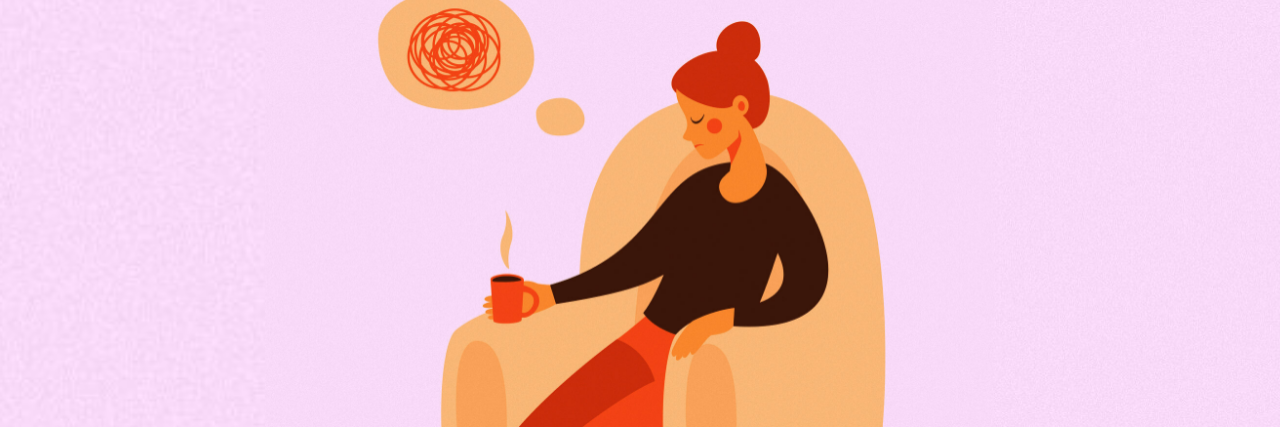Disappointed You Can't Make Plans Due to COVID-19? Welcome to Life With Chronic Illness.
Last week, the coronavirus — the new viral strain in the coronavirus family that affects the lungs and respiratory system — was officially declared a pandemic and a national emergency, with many Americans following public health recommendations to practice social distancing. If you’re like many others in the U.S., by now you’re sequestered away in your home with a closet full of toilet paper and hand sanitizer. In most cases, your classes and/or job have been moved online, and your social plans for the foreseeable future have been put on hold.
Sound familiar? It does to me, too — but for different reasons. In my case, daily life hasn’t really changed. The Coronavirus is new to all of us, but many chronically ill people have been living this way for years. As someone who lives with multiple chronic conditions, I personally know a thing or two about situations being out of my control for medical reasons. Let me explain.
When I see students posting how devastated they are that the rest of their semester was canceled or moved online, I can relate. I toured several beautiful college campuses in high school, got accepted to every school I applied to, and then ended up unable to attend any of them because of my health.
When I see athletes talking about their season cancellation and how everything they’d worked so hard for was ripped away, I can relate. I was a highly competitive softball player until chronic illness forced me to stop before reaching the goals I’d set.
When I see people complaining about the trips they’ve had to cancel, I can relate. I’ve canceled simple two-day road trips and exotic overseas flights alike because I was stuck in bed with fatigue and pain.
When I see people saying how uncertain and worried they feel because they can’t make plans for the future, I can relate. I’ve been struggling to make plans for the past year, taking things one day at a time as I’m in survival mode because of my debilitating GI symptoms.
When I see people expressing their frustration about trying to get work done from home or their worry they’ll lose their job and their salary, I can relate. I work from home because I’m not well enough to hold down even a part-time job outside the house. There are periods of time where I’m also not well enough to do my work from home as much as usual and my income goes down while my medical bills go up.
When I see people talking about how they’re borderline depressed from sitting at home by themselves, I can relate. When I’m in a flare-up, it’s common for me to not step outside the door of my 700-square foot apartment for seven to 10 days, and the isolation absolutely does a number on your mental health.
Don’t get me wrong: I’m not complaining. I’m very fortunate to not be homebound, except for the occasional week or two during bad flares. I’m able to do a lot of the things I want to do by pushing through and building in recovery time later. I lead a fulfilling life that, during seasons when I’m functioning, includes dance, travel and time with friends. But these things are still physically difficult. And over the last several years, there have been many things I can’t do — whether I know ahead of time I can’t handle something physically, or I think I can do it but wake up feeling bad the day of — and I know there will be many more. And I feel grief about everything I’m missing out on.
I’m not invalidating the pain that any healthy people feel from canceled or postponed events. Emotionally, this is a big deal — a “pandemic of human disappointment,” as Nadia Bolz-Weber said on Twitter — and my heart truly hurts for everyone who is feeling scared, worried and upset about their changing plans. There’s a lot of grief involved here. I know that. My heart goes out to everyone dealing with these situations because I’ve felt that. Because for many chronically ill people, this is how they’re forced to live their daily life. And even when the COVID-19 quarantine is over, that’s not going to change.
When the coronavirus pandemic ends, you’ll eventually go back to your normal life. You’ll go to work, go on vacation, and return to your normal social life. But for me, this isn’t a one-time thing. I will continue to grieve the things I can’t do because of chronic illness for the rest of my life. My “pandemic of disappointments” is chronic.
We all experience things differently and no one’s pain is “worse” than someone else’s. But I want you to know that I can relate to your feelings of anger, sadness and grief during this season where things are out of your control. And maybe when it’s over, you’ll be able to relate to mine, too.
Concerned about coronavirus? Stay safe using the tips from these articles:
GettyImages photo via Ponomariova_Maria

